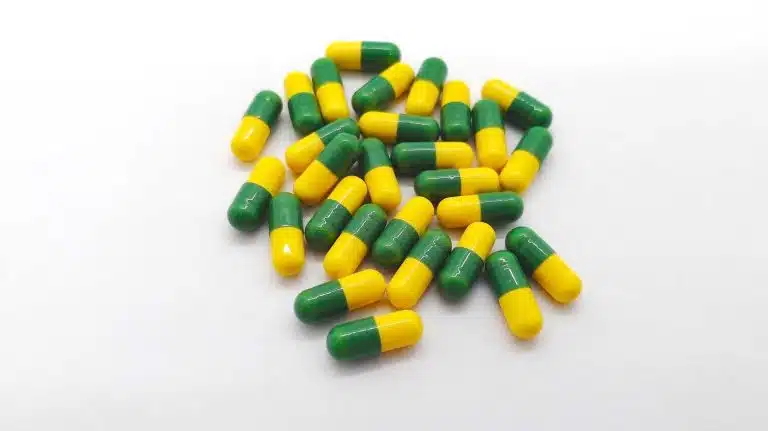Taking Tramadol To Get High | Risks Of Recreational Tramadol Abuse

Tramadol is a prescription opioid analgesic (painkiller). It’s often sold under the brand names ConZip, Ultram, and Ultracet (when combined with acetaminophen).
Structurally similar to opiate codeine, tramadol provides pain relief by activating opioid receptors throughout the central nervous system.
It changes how the body reacts to moderate-to-severe pain, such as chronic pain and pain following surgery. Common side effects of tramadol include dizziness, drowsiness, constipation, and headache.
The drug is classified as a Controlled Substance. That’s because recreational use of tramadol poses serious health risks.
What Is Recreational Tramadol Abuse?
Recreational tramadol abuse occurs when you use the drug in a manner not prescribed by your doctor. For example, you might take higher doses than prescribed, take it more frequently than prescribed, or crush the pills and snort them.
People abuse tramadol to feel relaxed and euphoric, or “high.”
Risks Of Recreational Tramadol Abuse
Abusing tramadol raises your risk of the following health problems:
Serotonin Syndrome
Serotonin is a neurotransmitter (brain chemical) associated with mood, memory, and thinking. Because tramadol increases the level of serotonin in your body, it can lead to serotonin syndrome. This condition occurs when your body has too much serotonin. Signs include:
- agitation
- restlessness
- confusion
- high blood pressure
- increased heart rate
- sweating
- shivering
- goosebumps
- headache
- diarrhea
- enlarged pupils
- rigid or twitching muscles
The syndrome can also cause life-threatening symptoms such as high fever, irregular heartbeat, seizures, and loss of consciousness. Contact your doctor if you experience any signs of serotonin syndrome.
You’re more likely to develop the condition if you use tramadol alongside other substances that increase serotonin. Examples include:
- other opioids like codeine and oxycodone
- selective serotonin reuptake inhibitors (SSRIs) like Zoloft and Prozac
- selective serotonin-norepinephrine reuptake inhibitors (SNRIs) like Cymbalta and Effexor
Adrenal Insufficiency
Your adrenal glands produce hormones like adrenaline, cortisol, and aldosterone. These hormones help regulate your blood pressure, heart rate, and immune system function.
Tramadol abuse can decrease your body’s ability to produce these hormones, causing a condition called adrenal insufficiency. You may then experience unpleasant symptoms like drowsiness, loss of appetite, stomach pain, and muscle weakness.
Androgen Deficiency
Tramadol abuse can also lower your body’s production of androgens. Androgens are sex hormones involved in metabolism, sexual and reproductive health, and bone and muscle health.
When you lack androgens, you may experience fatigue, sweating, depression and other mood problems, decreased libido, decreased sexual pleasure, fertility issues, and decreased bone and muscle mass.
Overdose
If you use too much tramadol, you may experience a life-threatening overdose. Common symptoms of a tramadol overdose include:
- smaller pupils
- extreme drowsiness
- cold, clammy skin
- muscle weakness
- slow, shallow, or troubled breathing
- slowed heartbeat
- loss of consciousness
Seek emergency medical advice if you or someone you know displays these symptoms. In most cases, first responders or emergency room staff will administer naloxone, a medication that can quickly reverse the effects of an opioid overdose.
You face a higher risk of fatal overdose if you mix tramadol with other opioid drugs, such as fentanyl.
Addiction
Tramadol abuse often leads to tramadol addiction. Addiction, also called substance use disorder, is a serious disease that makes you feel unable to stop using a drug despite negative consequences.
The two most common signs of tramadol addiction are tolerance and physical dependence.
Tolerance means that over time, you need increasingly higher doses of tramadol to feel the desired effects. Physical dependence means your body relies on tramadol to function normally. Without the drug, you may experience withdrawal symptoms such as:
- sweating
- runny nose
- body aches
- anxiety
- depression
- trouble thinking or concentrating
- diarrhea
- vomiting
- irritability
- intense cravings for tramadol
Other signs of tramadol addiction include:
- loss of interest in activities once enjoyed
- mood swings
- avoidance of work, school, or other responsibilities
- visiting multiple doctors to get multiple prescriptions of tramadol, also called “doctor shopping”
Other Risks
Other serious side effects of tramadol abuse include:
- swollen eyes, face, throat, tongue, lips, hands, feet, ankles or lower legs
- hives, rash, or blisters
- seizures
- respiratory depression (slow, ineffective breathing)
- hallucinations (seeing, hearing, or feeling things that aren’t there)
- trouble swallowing
- lowered sexual desire or ability
- irregular menstruation
- nausea and/or vomiting
- diarrhea
- changes in heartbeat
- loss of consciousness
Contact your health care provider if you experience any of these issues.
If you or someone you love struggles with tramadol abuse or another form of drug abuse, please contact an Ark Behavioral Health specialist. Our substance abuse and addiction centers offer comprehensive treatments such as medical detox, mental health counseling, and group therapy.
Written by Ark Behavioral Health Editorial Team
©2024 Ark National Holdings, LLC. | All Rights Reserved.
This page does not provide medical advice.
Journal of Toxicology - Tramadol Induced Adrenal Insufficiency: Histological, Immunohistochemical, Ultrastructural, and Biochemical Genetic Experimental Study
United States Food and Drug Administration - FDA Drug Safety Communication: FDA warns about several safety issues with opioid pain medicines; requires label changes
United States National Library of Medicine - Serotonin Syndrome Associated With Tramadol
United States National Library of Medicine - Tramadol
United States National Library of Medicine - Tramadol and seizures: a surveillance study in a managed care population


Questions About Treatment?
Ark Behavioral Health offers 100% confidential substance abuse assessment and treatment placement tailored to your individual needs. Achieve long-term recovery.
100% confidential. We respect your privacy.
Prefer Texting?
Our friendly support team is here to chat 24/7. Opt out any time.







 Learn More
Learn More








